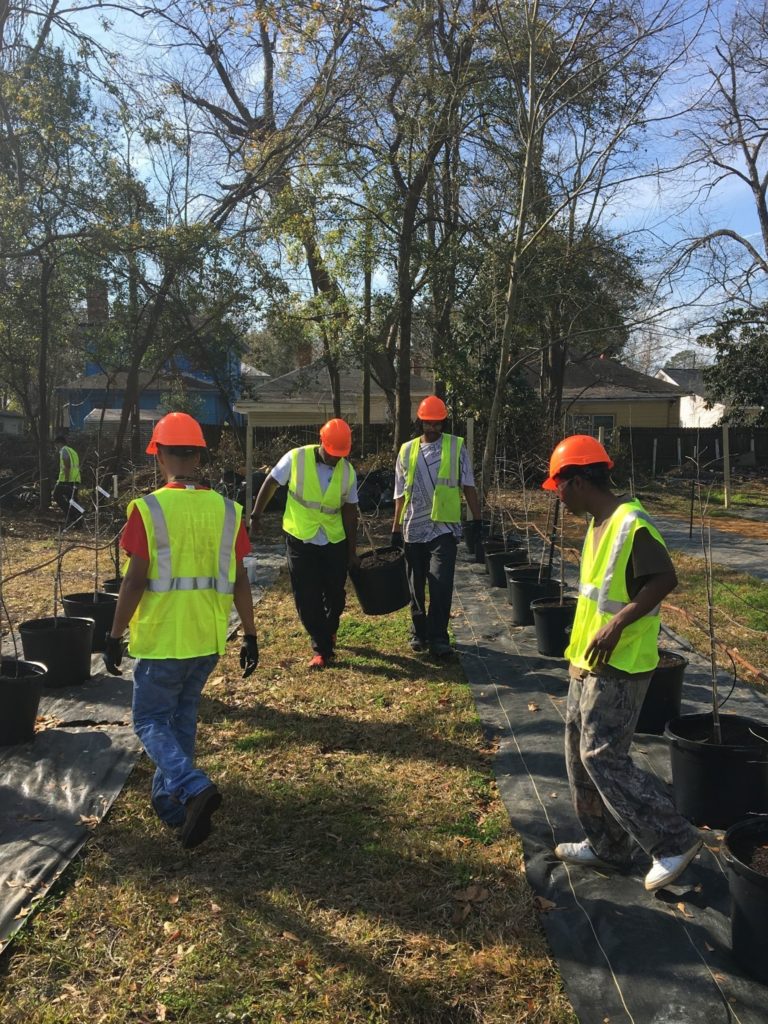Mentorship Spotlight: Creativity in Research and Planning
Mentee Katy Barlow is the Restoration Manager for The Nature Conservancy’s (TNC) Central Appalachians Program. The program’s mission is to protect and manage the climate-resilient lands of the Central Appalachian mountains with nature-based solutions. In her position, Katy works with forest science researchers and restoration practitioners to apply science outcomes at scale through demonstration of…
Read MoreASAP Members Collaborate to Launch Policy Campaign
By: Miles Gordon, ASAP Member Over the past two weeks, I have been working as part of a group of ASAP members to plan and execute an extensive messaging campaign to urge our federal representatives to include climate adaptation and resilience investments in upcoming federal coronavirus relief and infrastructure bills. With a new round of…
Read MoreAdapting to a Changing Gulf Region: Join the Online Course
By: Lily Swanbrow Becker These days, we are all trying our best to “stay connected.” As we collectively wade through the murky waters of isolation, many of us are turning to our screens in search of connection touch points and meaningful ways to engage. While there is certainly no shortage of virtual opportunities to connect…
Read MoreASAP’s Response to COVID-19: Adaptive Management
Written by Beth Gibbons, ASAP’s Executive Director In early 2019 a sign appeared on the wall of ASAP’s modest office building. It reads, “We Will Figure It Out”. When it appeared we laughed at how appropriate it felt, given how many times a day our team sat down to think through a new challenge, be…
Read MoreResilient DC: A Strategy to Thrive in the Face of Change
DC is boldly moving their resilience strategy forward. After two years of iterative engagement with residents, the capital city’s unique approach includes one of our favorite topics: individual resilience! Check out the Resilient DC report for the nitty gritty on resilience in the nation’s capital city.
Read MoreFayette and Kanawha Counties Improve CRS Ratings
West Virginia Division of Homeland Security and Emergency Management (DHSEM) recently recognized the counties of Fayette and Kanawha in their efforts towards fostering more disaster-resistant communities. These efforts led to the counties’ Community Rating System (CRS) classes to improve, which resulted in flood insurance premium reductions through the National Flood Insurance Program (NFIP).
Read MoreGreater Miami Resilient305 Strategy Released
This past month in Southeast Florida, Miami-Dade County, an ASAP organizational member, alongside the City of Miami and the City of Miami Beach released their Resilient305 Strateg. The Resilient305 Strategy will act as a guide for the Greater Miami area and the Beaches’ climate resilience challenges, touching on topics from rising sea levels to public health and affordable housing.…
Read MoreActionable Science Case Study: Modeling Forest Thinning Effects on Water Yield for the Four Forest Restoration Initiative
Severe drought and wildfires in the Southwest are causing tree die-offs. The Nature Conservancy, through the USFS Four Forest Restoration Initiative, is testing and evaluating new approaches to forest management in the ponderosa pine forests and watersheds around Phoenix. This project, which has demonstrated short term benefits for river flow to the Salt-Verde watershed is just one…
Read MoreRestorative Green Infrastructure in the South
Trees are the cornerstone of Savannah, GA’s green infrastructure system. With increases in population and overall city growth, the number of trees and tree canopy cover has drastically decreased. In an effort to restore Savannah’s green canopy, renew several marginalized communities, and reduce stormwater runoff and flooding events, Savannah’s Office of Sustainability and their partners launched a…
Read MoreMescalero Apache Tribe Adapts to a Warmer and Drier Climate
Home to the Mescalero Apache Tribe, the Sacramento Mountains in southern New Mexico are experiencing a warmer, drier climate and an increase in extreme weather events. In the face of a changing climate, the Tribe is building capacity—and climate resilience—through forestry management, habitat protection, and an innovative approach to healthy eating. Read this case study…
Read More
